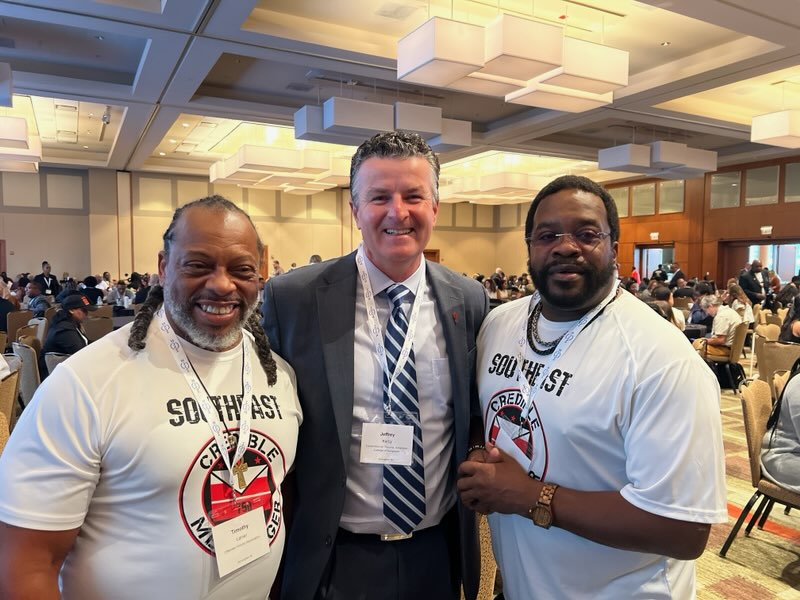UAB was represented at the recent 2023 HAVI (the Health Alliance for Violence Intervention) Conference last month in Chicago.
Division of Trauma and Acute Care Surgery director Jeffrey Kerby, M.D., Ph.D., FACS, in his role as Chair of the American College of Surgeons Committee on Trauma (COT), gave remarks to the over 700 attendees at the sold-out event, the first in-person conference since the pandemic.
The HAVI Conference is described as “a national convening of stakeholders from government, healthcare, philanthropy, and frontline violence prevention.”
Kerby’s remarks focused on the collaboration between the COT and the HAVI. He described the journey of UAB in developing its hospital-linked violence intervention program and gave recognition to the Offender Alumni Association for providing the services to run the program.
“This really is a growing movement with a lot of momentum,” Kerby said. “There is a lot of regional and national attention on funding and growing these programs, and the impact they have.”
UAB’s Violence Intervention and Prevention Partners, or VIP2, program launched earlier this year, with the OAA receiving a $1.1 million grant from the Jefferson County Department of Health for the first year of the program.
VIP2 serves Jefferson County residents between the ages of 19-39 who have survived a non-self-inflicted gunshot injury. Trained violence intervention specialists with lived experience meet with the patients while they’re still in the hospital, and follow up with them over months, providing connections to social, medical, and mental health services and monitoring survivors’ progress over time.
So far, UAB’s VIP2 program is serving 22 clients. During the second quarter, none of the clients have been reinjured or involved in retaliatory gun violence.
Members of the OAA attended the HAVI conference, including executive director and cofounder Deborah Daniels and several of the violence intervention specialists.
“The conference was inspiring in every way,” Daniels said. “It provided an opportunity for the VIP2 team to fellowship, share, and gain insight from others around the country involved in this work to reduce acts of violence and improve health outcomes for survivors of violence.”